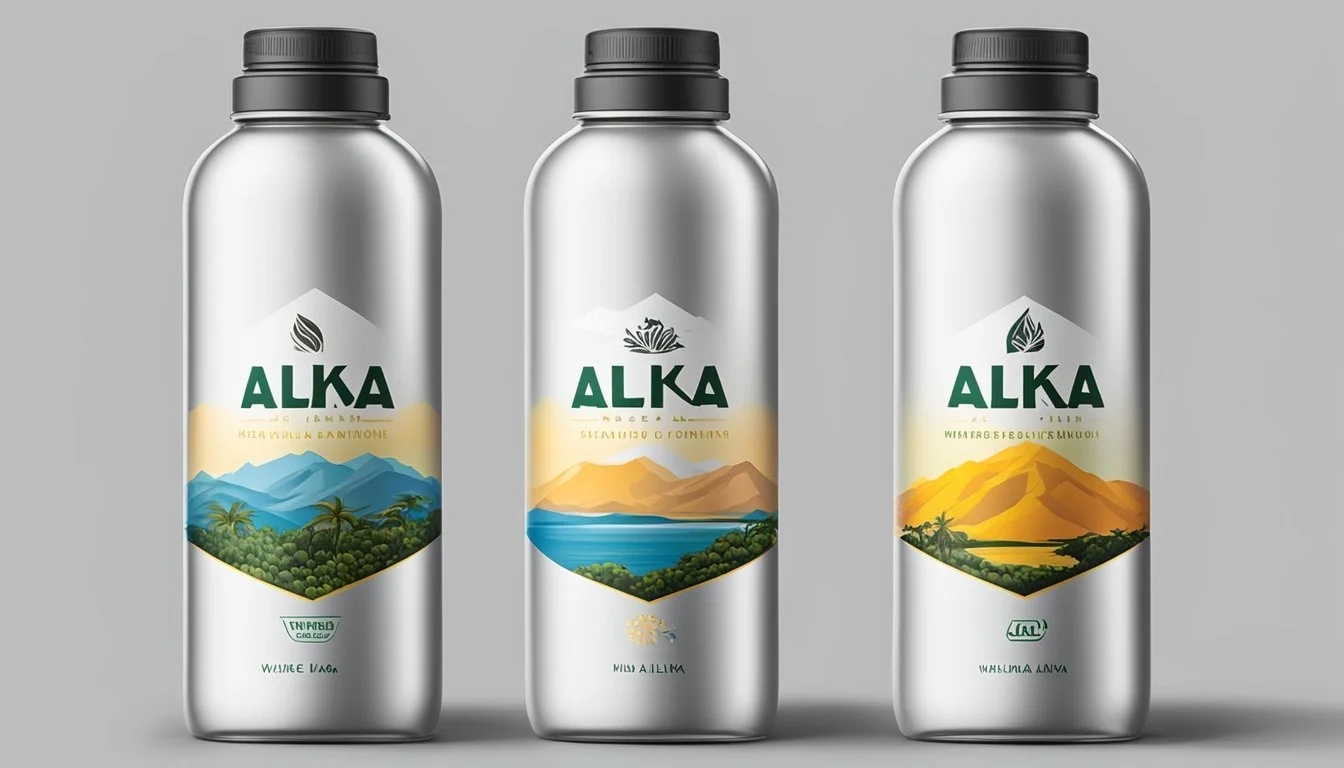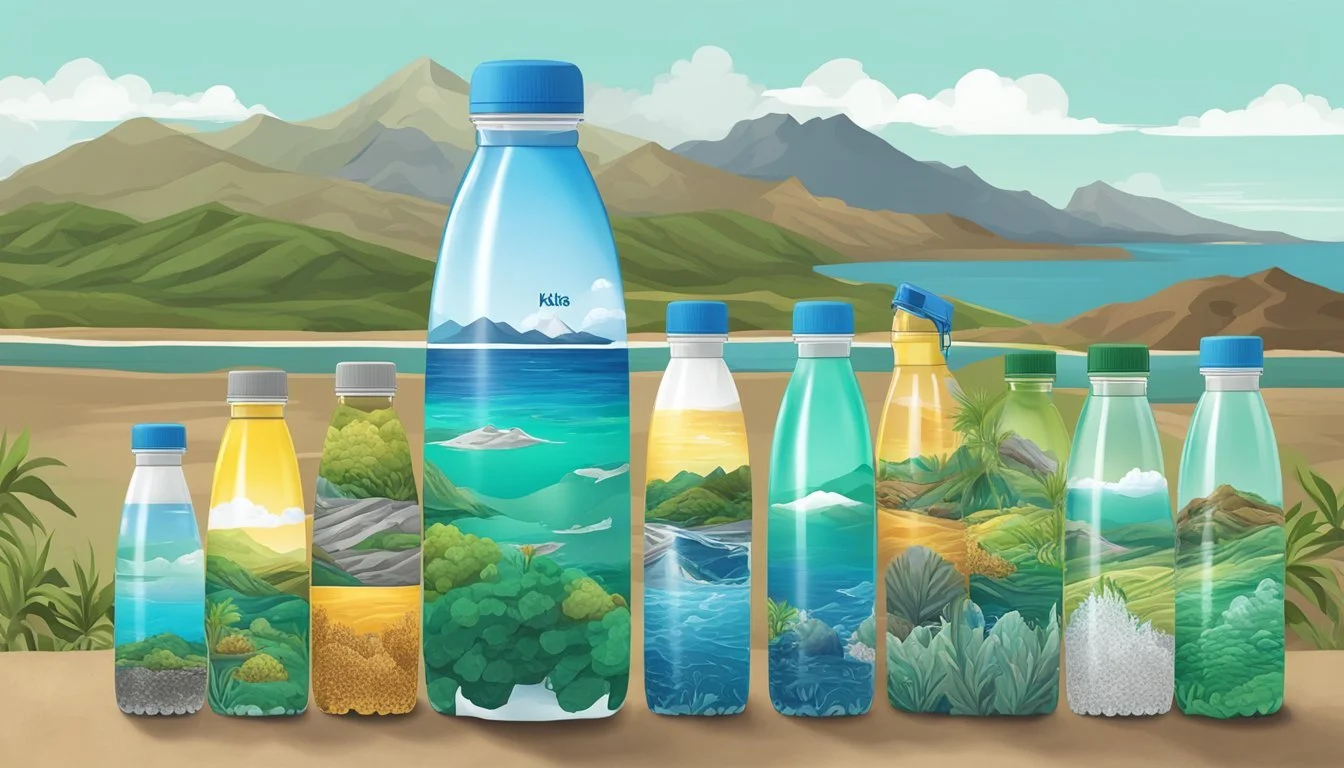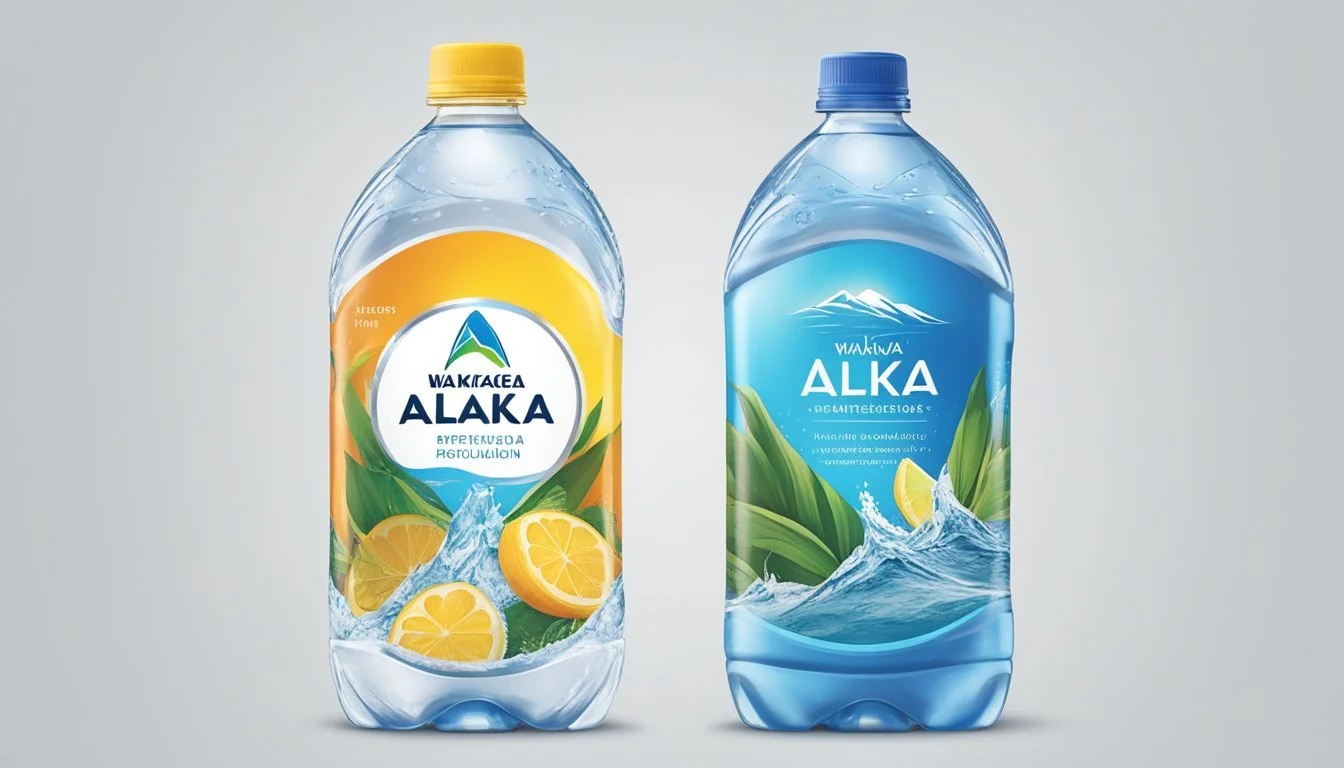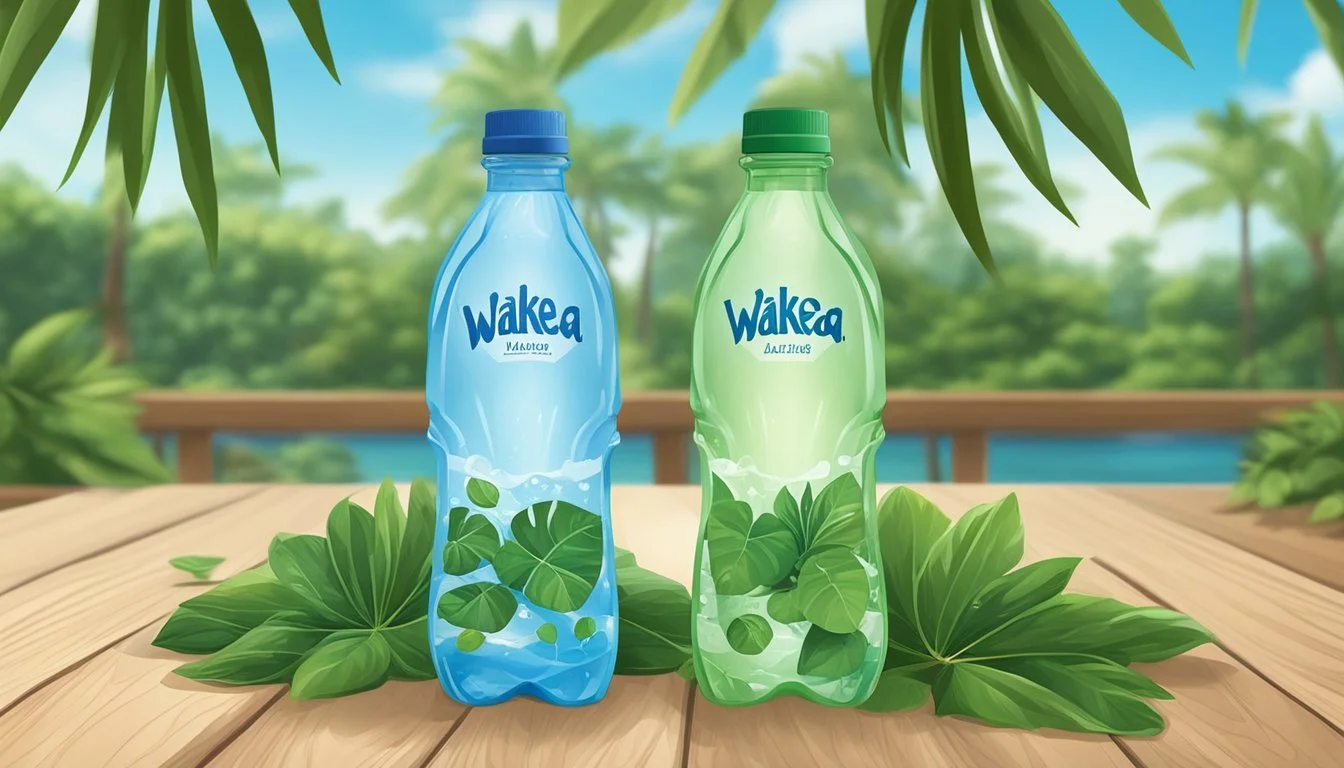Waiakea vs. Tru Alka
Comparing Premium Bottled Waters
In the world of bottled water, both Waiakea and Tru Alka have gained a dedicated following among health-conscious consumers. Waiakea water, sourced from the volcanic landscapes of Hawaii, boasts a natural alkalinity with a pH of 8.2 and is enriched with minerals from volcanic rock. This gives it a unique position among bottled water brands.
Tru Alka, on the other hand, is known for its engineered high pH level, typically around 9 to 10, which may help neutralize acidity in the body and contribute to better hydration. It also includes specific minerals and additives designed to enhance health, making it an appealing option for those looking for water that goes beyond basic hydration.
The choice between Waiakea and Tru Alka ultimately comes down to personal preference and specific health goals. Waiakea offers natural volcanic water with inherent benefits, while Tru Alka provides engineered alkalinity and mineral content. Understanding the unique advantages of each can guide consumers to make the best decision for their hydration needs.
Understanding Bottled Water
Bottled water comes in various types, each with distinct characteristics in quality, mineral content, and purification processes. It's important to understand the health implications and the regulatory standards that ensure its safety for consumers.
Types of Bottled Water
Spring Water is naturally filtered through underground aquifers, which often imparts unique mineral content and a fresh taste. Commonly classified based on its origin, this water must be collected directly from the spring or through a borehole that taps into the underground formation.
Mineral Water contains naturally occurring minerals that are added or present from the source. It must contain no less than 250 parts per million total dissolved solids and can’t have minerals added after it is collected.
Purified Water undergoes processes such as distillation, deionization, or reverse osmosis to remove contaminants and impurities. This category includes distilled water and deionized water, often resulting in a product that's free of minerals and other substances.
Alkaline Water is known for its higher pH level, typically above 7. This type of water can be naturally alkaline or ionized to increase its pH, which some consumers believe may neutralize body acidity.
Tap Water is the water that comes from local water supplies and can vary significantly in quality and taste. It is generally treated to meet safety standards but may still contain varying levels of contaminants depending on the source.
Health Implications of Bottled Water
The health benefits and implications of bottled water can vary based on type. Alkaline water is often touted for its potential to balance body pH and hydrate better, though scientific evidence is mixed.
Mineral water provides essential minerals such as calcium and magnesium, which can support bone health and metabolic functions. However, excessive consumption may lead to mineral overload.
Purified water reduces the risk of consuming contaminants, but the lack of minerals may make it less beneficial compared to its mineral-rich counterparts.
Safety and hygiene in bottled water ensure it is a reliable alternative to potentially contaminated tap water in some regions. However, it is essential to check the source and treatment methods to understand its impact on health.
Regulatory Standards and Safety
Bottled water is regulated by various agencies to ensure safety and quality. In the United States, the Food and Drug Administration (FDA) sets standards that bottled water must meet to be considered safe for consumption.
These standards require regular testing for contaminants such as bacteria, heavy metals, and chemical pollutants. Bottled water producers must also adhere to good manufacturing practices to prevent contamination during processing and bottling.
Sustainable practices are becoming increasingly important in the industry. Companies like Waiakea emphasize carbon neutrality and environmental responsibility. Ensuring the long-term health of both consumers and the planet is a growing focus, aided by stringent regulatory oversight.
Comparing Waiakea and Tru Alka
When comparing Waiakea and Tru Alka, the similarities and differences in their company backgrounds, sources, and purification processes are crucial. Both brands emphasize unique origins and advanced filtration methods to offer premium drinking water.
Company Backgrounds
Waiakea is a Hawaiian-based bottled water brand known for its volcanic water. The company prides itself on its sustainability efforts, such as being Carbon Neutral certified and donating a portion of revenue to nonprofits.
Tru Alka, on the other hand, focuses on providing purified alkaline water, emphasizing purity and health benefits. The brand aims to create water that supports wellness through careful treatment and filtration.
Source and Origin
Waiakea sources its water from the Mauna Loa volcano in Hawaii. It claims to have naturally alkaline water with a pH range between 7.6 and 8.8 due to its volcanic filtering process. The water is said to be rich in minerals.
Tru Alka sources its water from multiple aquifers across the United States. Tru Alka water undergoes a series of treatments to achieve an alkaline state. Tru Alka ensures balanced pH and high mineral content through their proprietary processes.
Filtration and Purification Processes
Waiakea's water filters through volcanic rock, naturally enriching it with minerals. The process includes minimal human intervention to preserve natural properties.
Tru Alka utilizes advanced filtration, including micro-filters, reverse osmosis, and ultraviolet exposure, to achieve 99.9% purity. Tru Alka then infuses water with electrolytes and ionizes it to create alkaline water with a pH of 9.5 or higher.
Both brands offer high-quality, mineral-rich water, but their purification methods differ significantly to cater to varied consumer preferences.
Water Quality and Composition
When comparing Waiakea and Tru Alka bottled water, key elements like pH levels and alkalinity, mineral content, and the presence of contaminants become crucial factors for determining the water quality and potential health benefits.
PH Levels and Alkalinity
Waiakea water has a pH level ranging around 8.2, positioning it in the slightly alkaline category. This can aid in neutralizing body acidity, promoting better hydration. Tru Alka, on the other hand, boasts a significantly higher pH, around 9 to 10. This high alkalinity enhances its potential to counteract acidic environments in the body, making it a favorite among those seeking alkaline water benefits.
Mineral Content and Health Benefits
Waiakea water is rich in natural minerals obtained as it filters through volcanic rock. It is particularly noted for its silica content, which supports bone, skin, hair, and nail health. The presence of electrolytes like calcium, magnesium, and potassium further boosts its health benefits. Tru Alka water also contains essential minerals, with an emphasis on its engineered composition to include specific additives that enhance its hydration and health effects.
Presence of Contaminants
Both Waiakea and Tru Alka pride themselves on maintaining high purity standards. Waiakea has the added assurance of being the first US bottled water brand to be certified Carbon Neutral. Tru Alka's advanced purification methods, including micro-filtration and reverse osmosis, ensure up to 99.9% purity. This rigorous process minimizes contaminants, providing clean and safe drinking water.
Taste and Electrolytes
Waiakea and Tru Alka offer distinct advantages related to taste and electrolyte content that are essential to understanding their differences.
Taste Profile
Waiakea water, sourced from volcanic rock in Hawaii, delivers a naturally alkaline pH range of 7.6 to 8.2. This results in a slightly sweet and mineral-rich flavor, enhanced by the minerals absorbed as the water passes through volcanic rock. Many consumers describe Waiakea's taste as smooth and refreshing, which is a significant factor for those who prefer a natural flavor profile.
Tru Alka, on the other hand, boasts a high pH level typically around 9 to 10. This higher alkalinity can impart a more pronounced taste. Some people find Tru Alka to have a clean and crisp flavor, though the increased pH might be noticeable and preferred by those who seek a more distinguished taste.
Electrolyte Levels and Hydration
Waiakea includes a rich mix of natural minerals such as silica, which is beneficial for bone, hair, skin, nails, and heart health. Silica also supports collagen synthesis, making it a valuable element in hydration. The presence of natural electrolytes further enhances the water's ability to keep the body well-hydrated.
In contrast, Tru Alka focuses on its alkaline properties to support hydration. The water's high pH level is believed to neutralize body acidity, potentially contributing to better overall hydration. Tru Alka's inclusion of specific minerals and additives aims to not only hydrate but also promote health benefits.
Thus, both waters contain vital electrolytes that aid hydration, yet they differ in their source and mineral composition. Waiakea's naturally occurring minerals and volcanic origin set it apart, whereas Tru Alka’s engineered mineral content and high alkalinity offer a unique hydration experience.
Packaging and Environmental Impact
When comparing Waiakea and Tru Alka, it's crucial to examine the packaging and environmental impact of each brand. This helps consumers make informed choices about the sustainability and ethical considerations of their bottled water.
Bottles and Sustainability
Waiakea uses high-grade 100% recycled PET (rPET) for their bottles. This material not only reduces the carbon footprint by 79%, but also uses 85% less energy and 99% less water in the manufacturing process. Additionally, their bottles are BPA-free, ensuring they are safe for consumers.
Tru Alka, on the other hand, employs similarly sustainable practices in their packaging. Their bottles are also made from rPET and are 100% recyclable. By leveraging recycled materials, both brands contribute to significant reductions in environmental impact.
Environmental Certifications and Company Initiatives
Waiakea is notable for being the first U.S. bottled water certified Carbon Neutral. Moreover, they donate over 5% of their revenue to nonprofits in Hawaii and around the world. Their facility also utilizes 33% renewable energy, highlighting their commitment to sustainability and community impact.
Tru Alka emphasizes ethical production and community engagement as well. They actively support clean water initiatives and sustainable practices within their operations. While Tru Alka's certifications are not as prominently featured as Waiakea’s, their consistent focus on ethical and sustainable production practices reflects a strong environmental ethos.
Consumer Considerations and Market Position
Waiakea and Tru Alka cater to different consumer preferences with varying costs, brand reputations, and accessibility options. These factors significantly impact purchasing decisions and customer loyalty.
Cost and Value Comparison
Waiakea is positioned as a premium bottled water brand, often priced higher due to its volcanic filtration and mineral content. Customers seeking added health benefits and unique origin may find value in its premium price.
Tru Alka emphasizes its high pH levels and advanced purification methods. Its pricing is competitive within the alkaline water market, appealing to health-conscious consumers looking for enhanced hydration without a hefty price tag.
While Waiakea offers a unique product, Tru Alka attracts those prioritizing cost-effectiveness and health benefits.
Brand Reputation and Consumer Loyalty
Waiakea has built a strong reputation for sustainability, being one of the first US bottled water brands certified Carbon Neutral. It donates over 5% of its revenue to nonprofits, underpinning its commitment to social responsibility. This enhances brand loyalty among eco-conscious consumers.
Tru Alka's reputation rests on its consistent delivery of high pH water and advanced purification techniques. This reliability fosters consumer trust, especially among those focused on health and wellness.
Both brands command loyalty through their distinct market approaches, with Waiakea focusing on sustainability and Tru Alka on health benefits.
Availability and Convenience
Waiakea's distribution is fairly widespread, available in various health food stores, supermarkets, and online platforms. Its unique volcanic water source and branding appeal to a niche market, yet its availability remains accessible.
Tru Alka's products are also widely available, particularly through health-oriented retail outlets and online stores. Its variety of offerings caters to different consumer needs, making it a convenient choice for those seeking alkaline water.
Both brands offer convenient access to their products, but their focus on health-conscious consumers positions them strongly within niche markets.
Conclusions
When comparing Waiakea Water and Tru Alka, several key aspects emerge.
Alkaline Water: Both brands offer alkaline water, known for its potential health benefits. Waiakea's natural alkalinity stems from volcanic rock filtration, while Tru Alka uses an advanced ionizing process.
Health Benefits: Waiakea is rich in minerals and electrolytes, promoting hydration and overall wellness. Tru Alka also supports hydration and offers a clean, crisp taste.
Purity: Waiakea boasts purity due to its Hawaiian volcanic source. Tru Alka ensures purity through rigorous filtration and ionization techniques.
Sustainability: Waiakea excels with its eco-friendly practices, including carbon-neutral production and recyclable packaging. Tru Alka emphasizes sustainability with recyclable materials and efficient production processes.
In summary, both Waiakea and Tru Alka present strong options for consumers seeking high-quality bottled water. Each brand brings unique strengths, whether it's Waiakea's natural mineral content and sustainability efforts or Tru Alka's commitment to purity and hydration. Choose based on personal preferences and priorities.
More About Waiakea
Icelandic Glacial vs Waiakea: Which Bottled Water is Better?
Mountain Valley Spring Water vs Waiakea: Which Bottled Water is Better?
Waiakea vs Kirkland Signature: Which Bottled Water is Better?
Waiakea vs Richard's Rainwater: Which Bottled Water is Better?
Waiakea vs Whole Foods Italian Still Mineral water: Which Bottled Water is Better?
More About Tru Alka
Hawaiian Springs vs Tru Alka: Which Bottled Water is Better?
Icelandic Glacial vs Tru Alka: Which Bottled Water is Better?
Mountain Valley Spring Water vs Tru Alka: Which Bottled Water is Better?
Nestle Pure Life vs Tru Alka: Which Bottled Water is Better?
Tru Alka vs Cascade Mountain: Which Bottled Water is Better?
Tru Alka vs Kirkland Signature: Which Bottled Water is Better?
Tru Alka vs Richard's Rainwater: Which Bottled Water is Better?
Tru Alka vs Talking Rain AQA: Which Bottled Water is Better?
Tru Alka vs Whole Foods Italian Still Mineral water: Which Bottled Water is Better?





